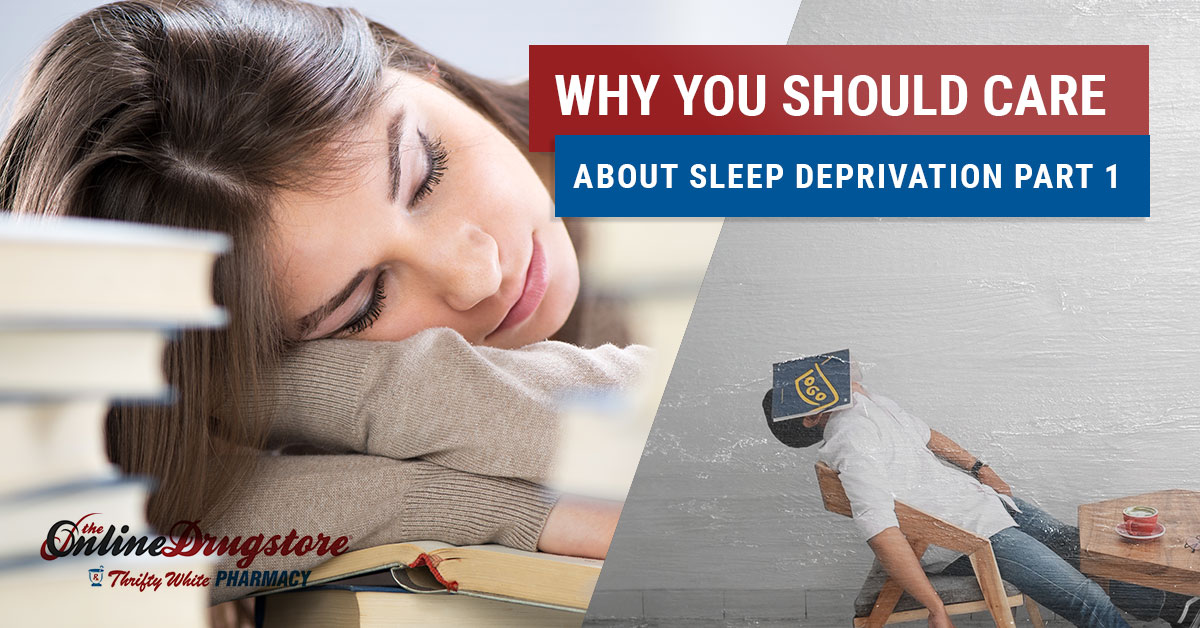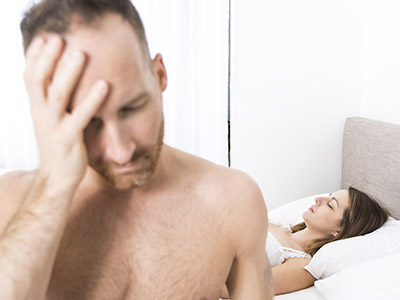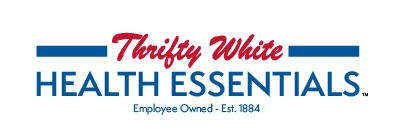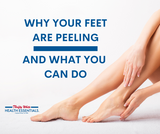

Do you know that person — the person that can go and go and requires, what seems like, only a couple hours of sleep to be a functioning adult? Most of us know that person, but most of us are not that person! According to the Center For Disease Control and Prevention (CDC), one in three Americans reported that they’re not getting enough sleep, what equates to at least seven hours each night. So why are Americans so sleep deprived?
There are countless sleep aids and sleep remedies on the market, and Thrifty White Health Essentials carries a wide variety of products to help you get that much needed sleep. And, if you have a sleep aid prescription, we have a safe online pharmacy so you can get what you need without having to wait in long lines.
In today’s post, we’ll take a look at our relationship with sleep deprivation and the two major factors that are disrupting it.
Why Are We Not Getting Our Precious Zzzzz’s?
Sleep deprivation has a very simple definition of “not getting enough sleep,” but its causes and effects are much more convoluted. It’s no mystery that our stress levels continue to rise with the demands of work or a family, only followed with declining time spent in nature with the natural world, including the oh so nourishing natural light. Our non renewable resource — time — is being soaked up with technology, where if we’re not using it for work, it is used for killing time just about everywhere. You know the scene, you’re on the train or waiting in a doctor’s office and everyone is on their phone — do we even know how to sit still and just be anymore? That’s a whole other conversation, for another time. So, stress and technology are at the forefront of sleep deprivation? Yes, those seemingly harmless things are causing more and more Americans to miss out on sleep each night, and for what? To check who posted on Instagram, or to answer a couple more emails?
Why Stress and Technology Are Harmful To Sleep Patterns
When you’re stressed your body boosts its stress hormones, and as it turns out, they’re the same brain chemicals connected to deep sleep and the ones that signal your body to stop making stress hormones. The result: you don’t sleep well and your body continues to pour out the hormones, which creates a cycle of feeling more stressed and finding it harder and harder to sleep each night. The lovely stress hormones also tend to peak in the late afternoon and evening, making it increasingly harder to fall asleep. Learning how to manage stress will do wonders for your sleep and your overall well being.
You may have heard the chatter on TV or in a passing conversation, but technology gravely disturbs your sleep. Technology suppresses melatonin as a result of the blue light they emit, and melatonin is the chief operating officer (or hormone) in controlling your circadian rhythm or sleep/wake cycles. When your melatonin is reduced, it’s much harder to fall asleep and stay asleep. Devices also keep your brain awake. When you answer late night emails or surf the web, it keeps your mind active and makes it more difficult to settle. The best practice to implement to when it comes to technology is to turn off all devices at least 30 minutes before bedtime. To take it one step further, keep your bedroom a tech-free zone and ditch the TV and tablets.
How Sleep Deprivation Affects Your Health

When you regularly miss out on sleep, it puts you at a much higher risk for many different health concerns. It can manifest as fatigue or brain fog, but this can turn into a susceptibility for accidents and injuries. You also can lose productivity at work, in addition to a cranky, fussy, and irritable mood. If your sleep deprivation becomes chronic and long term, you’re also prone to serious health issues such as obesity, high blood pressure, diabetes, and heart disease.
The body craves adequate sleep each night including:
- Immune support and staving off illness
- Wound healing
- Detoxification
- Digestion
- Hormonal balance
- Overall brain health
Sleep is extremely crucial to our health, yet many people will shrug off sleep deprivation in the name of being more productive or the office star. Technology and stress are two of the biggest culprits to sleep disturbances that are causing more health issues than just being tired. Between the blue light and disruptions from texts and alerts during the night, to not having a work/life balance, your body is missing out on sleep and the important processes that need to happen at night.
There is so much to cover on this topic, so we’ve extended it to two parts! Stay tuned!



